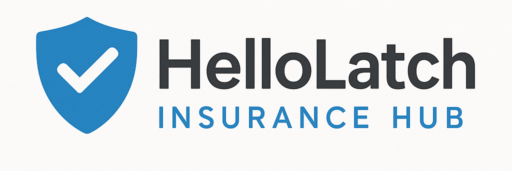A Health Savings Account (HSA) is a powerful financial tool that lets you save tax-free money for eligible medical expenses. If you have a high-deductible health plan (HDHP), an HSA can help reduce your healthcare costs—while also offering triple tax benefits.

Whether you’re trying to prepare for unexpected medical bills or save for healthcare in retirement, an HSA is worth understanding.
🔍 How Does a Health Savings Account Work?
An HSA functions like a personal savings account—but it’s designed specifically for healthcare costs.
Here’s how it works:
- ✅ You contribute money pre-tax from your paycheck or on your own
- ✅ You can use the funds anytime to pay for qualified medical expenses
- ✅ Unused funds roll over year to year (they never expire)
- ✅ You own the account—even if you change jobs or health plans
- ✅ Some HSAs even let you invest your balance, growing your healthcare savings
🩺 Who Is Eligible for an HSA?
To open or contribute to an HSA, you must:
- Be enrolled in a qualified high-deductible health plan (HDHP)
- Not be enrolled in Medicare
- Not be claimed as a dependent on someone else’s tax return
For 2025, the IRS defines an HDHP as a plan with at least:
- $1,650 deductible for individuals
- $3,300 deductible for families
💳 What Can You Use HSA Funds For?
You can use your HSA funds tax-free to pay for:
- Doctor visits & specialist copays
- Prescription medications
- Mental health counseling
- Dental & vision care
- Chiropractic & physical therapy
- Medical equipment
- Menstrual care products & some over-the-counter meds
Even long-term care, COBRA premiums, and Medicare premiums (once retired) are eligible.
🔄 HSA vs FSA: What’s the Difference?
| Feature | HSA | FSA |
|---|---|---|
| Eligibility | HDHP only | Any employer plan |
| Ownership | You | Employer |
| Funds roll over? | Yes, forever | Sometimes (limited rollover) |
| Invest funds? | Yes | No |
| Portability | Stays with you | Lost if you leave job |
An HSA is more flexible and long-term focused, while an FSA is use-it-or-lose-it.
💰 HSA Benefits: Why They’re So Powerful
- Triple tax advantage
- Tax-deductible contributions
- Tax-free growth (investment gains)
- Tax-free withdrawals for eligible medical expenses
- Long-term savings
- Unused funds can grow and be used in retirement
- You’re in control
- Spend or save as needed
- Choose how to invest excess funds
🏦 How to Open and Use an HSA
You can open an HSA through:
- Your employer, if offered as a benefit
- A bank or credit union that offers HSA accounts
- Online providers like Fidelity, Lively, or HSA Bank
2025 Contribution Limits (IRS):
- $4,150 for individual coverage
- $8,300 for family coverage
- Extra $1,000 catch-up contribution if you’re age 55+
You can pay directly with an HSA debit card, or pay out of pocket and reimburse yourself later.
❓ FAQs About HSAs
💬 Can I invest the money in my HSA?
Yes—many HSAs allow you to invest your balance in mutual funds or ETFs once it exceeds a minimum (e.g., $1,000).
💬 Can I use HSA funds for my spouse or kids?
Yes, even if they’re not on your insurance—so long as you claim them as dependents.
💬 What happens if I use the HSA for non-medical expenses?
If you’re under age 65, you’ll owe income tax + 20% penalty. After age 65, the penalty disappears (though regular taxes still apply).
✅ Conclusion: An HSA Is a Smart Way to Save on Healthcare
So, what is a Health Savings Account? It’s not just a place to stash money—it’s a strategic, tax-efficient way to handle healthcare expenses now and in the future.
If you qualify, opening an HSA could be one of the smartest financial decisions you make for your health and wallet.

